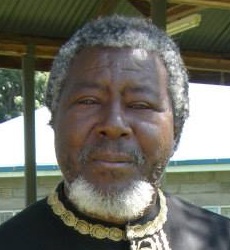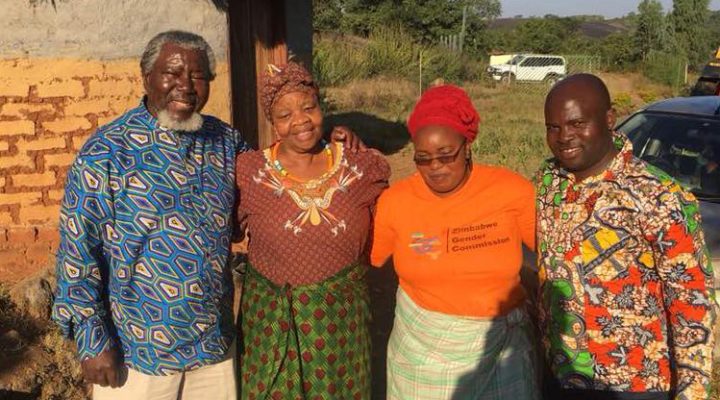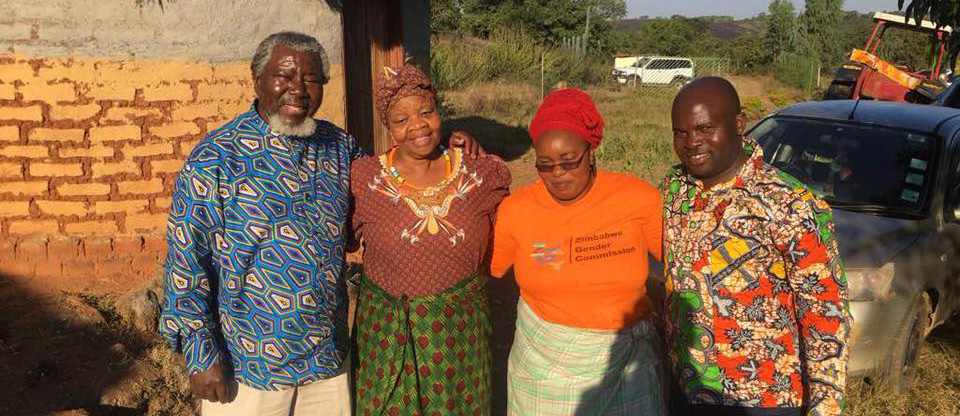A key figure in resisting the spillover of the Southern Baptist Convention’s “conservative resurgence” into global missions outposts has been killed in an automobile tragedy in Zimbabwe, according to friends in America.
Henry Mugabe along with his son, Munyaradzi Johannes Mugabe, and Dudzirai Chimeri, current president of Zimbabwe Theological Seminary, died in the Oct. 21 accident, according to various U.S. sources. Those sources include Thomas Graves, former president of Baptist Theological Seminary at Richmond and a good friend of Mugabe’s, and an official announcement from Lott Carey, a mission parter with the Zimbabwean seminary. Details of the crash were not known but it reportedly happened as the three were traveling from the capital city of Harare on their way back to Gweru after attending a graduation ceremony at the University of Zimbabwe.
“I have lost the best friend of my life,” Graves said.

Henry Mugabe
Mugabe, a native Zimbabwean, previously served as principal of the Baptist Theological Seminary of Zimbabwe, a school supported by the SBC’s International Mission Board. In 2011, he was fired for refusing to accept changes made to the school’s governing documents, including adherence to an SBC faith statement that forbids women from serving as pastors.
The controversy stemmed from conditions for transfer of school property from the IMB to the Baptist Convention of Zimbabwe. As reported by BNG at the time, the official reason for Mugabe’s termination was insubordination, based in part on his refusal to meet with a new council formed by the Baptist convention to replace the seminary’s board of trustees.
After locking Mugabe out of his office and giving him seven days to move from his home, owned by the Baptist Mission of Zimbabwe, convention officials reportedly froze assets for the seminary, blocking Mugabe from paying a 16-member staff and other seminary expenses.
As conservatives gained control of the SBC and its mission boards and seminaries in the 1990s, they also sought to impose changes on SBC-supported schools abroad, sometimes working through local Baptist bodies that also were heavily influenced by SBC missionaries.
A new charter was drafted for the Zimbabwean seminary without input from Mugabe. It required all academic staff “to subscribe to the 2000 Baptist Faith and Message upheld by the Baptist Convention of Zimbabwe, IMB and the Southern Baptist Convention.”
Mugabe later won an appeal of his dismissal in a ruling by a local labor court. However, he ultimately left the seminary and helped start a new ecumenical school in Zimbabwe, which he headed at the time of his death.
Mugabe enjoyed a rich and long-term relationship with BTSR, teaching regularly there as a visiting professor and staying as a guest in Graves’ home.
“Henry is one of the best-trained African theologians of any denomination and a recognized leader among Christian thinkers worldwide,” Graves said in 2011. His firing, Graves said then, “may well serve the agenda of Southern Baptist fundamentalists, but it ill serves the future of Christian ministry in the nation of Zimbabwe.”
Indeed, the SBC-controlled seminary struggled to regain its standing and the new seminary, The Zimbabwe Theological Seminary, drew support from multiple sources, including the Alliance of Baptists and Lott Carey.
“Henry Mugabe was one of the bravest men I have ever known.”
In 2011, Lott Carey launched a partnership with Zimbabwe Theological Seminary, and Mugabe was a key link in that partnership, said Lott Carey Executive Secretary-Treasurer Emmett Dunn. “The church in Africa has lost one of God’s faithful servants.”
“Henry Mugabe was one of the bravest men I have ever known,” said Bill Leonard, founding dean of the Wake Forest University School of Divinity. “Through multiple political and social upheavals in his native Zimbabwe, and intense ecclesiastical upheavals imposed from abroad on the theological seminary where he was president, Henry Mugabe kept his conscience intact.
“We met some 40 years ago at the Baptist seminary in Louisville where he was completing a Ph.D., and I was a fledgling professor. We became fast friends. Years later he served as an adjunctive professor at the School of Divinity, Wake Forest University, where I also taught, impacting students significantly. Henry was a superb minister-educator with a profound Christian character and a heart full of grace.”
Graves concurred: “Henry could have lived and worked comfortably in many places outside of bankrupt and forsaken Zimbabwe. His choice to return home after lecturing in America year after year is the finest example of Christian commitment and courage I have ever witnessed.
“Knowing the economic challenges of Zimbabwe, Henry developed a seminary curriculum that included instructions in raising chickens and goats as well as obtaining a secular teaching certificate to enable his graduates to eke out a living in the midst of one of the worst economies in the world. In addition to forming a seminary of significant size, Henry was running a large farming operation, a widespread feeding program and an orphanage, while at the same time building his own house. He puts ministers in the Western world to shame,” Grave said.
Chris Caldwell of Louisville, Ky., a faculty member at Simmons College of Kentucky, also was a friend of Mugabe’s.
“He struggled and succeeded at establishing a seminary committed to empowering Zimbabwean women and men to think theologically, free from colonial domination.”
“When Henry was finishing his Ph.D. program, he told me that, upon returning to Zimbabwe, the Southern Baptists who controlled the seminary would expect him to do their bidding. He knew he would not do that, and that there would be a price for that. He paid that price the rest of his life, as he struggled and succeeded at establishing a seminary committed to empowering Zimbabwean women and men to think theologically, free from colonial domination.”
Mugabe studied in Zimbabwe, South Africa and the United States. He earned a master of divinity degree from Southern Baptist Theological Seminary in 1990 and a Ph.D. there in 1993, just before SBC conservatives took control of that trustee board and instituted major changes.
In the States, he taught not only at BTSR but also at Campbell University Divinity School, McAfee School of Theology and Wake Forest University Divinity School.
Mugabe is survived by his widow, Hermina, and children Grace and Tinashse.
Related articles:
Zimbabwe Baptist seminary principal fired


